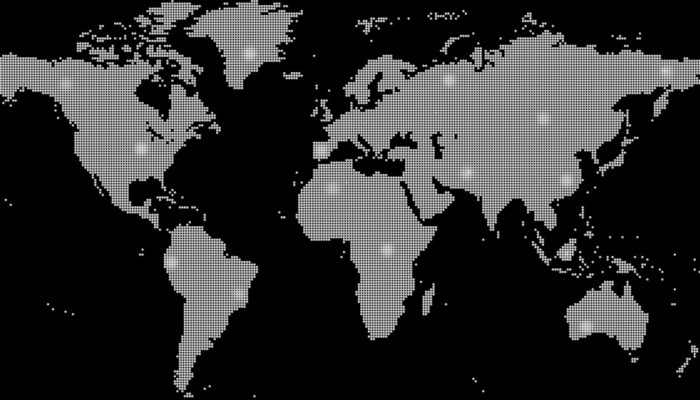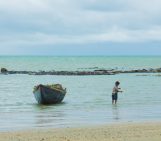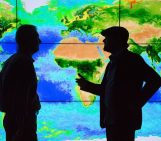
Each month, Jesse Zondervan picks his favourite posts from geoscience and development blogs/news which cover the geology for global development interest. Here’s a round-up of Jesse’s favourite selections for the last three months of 2019:
As the world is gripped by the 2019 Novel Coronavirus, research published in Nature Communications finds respiratory infection outbreaks could become less severe, but more common as the climate changes. In particular, the shift of climate to higher temperatures and more rainfall in temperate areas such as the northern US has led to epidemics of respiratory syncytial virus (RSV) becoming more common and happening earlier in the year.
Whilst collaboration between climate scientists and epidemiologists is not widespread yet, it is on the rise. Another study published in Nature Communications reports a link between the La Nina Climate Cycle in Botswana and increased diarrhoea, knowledge which allows public health officials to prepare for periods of increased diarrhoea cases as long as seven months ahead of time.
Last year, two studies focused in on the problem of arsenic in groundwater, which is a health problem both in India and in the US. Both found that reactive carbon, derived from dissolved organic matter, keeps arsenic mobile as groundwater gets pumped up. Thus, as we replenish much-needed aquifers, we need to take into account the dissolved organic matter in injected water.
More topics include lessons on climate change resilience from Samoan communities; a coral reef conservation effort integrating social and ecological science; and six positive climate change stories from 2019. These are:
- Costa Rica offers us a viable climate future
- Financial investors are cooling on fossil fuels
- We are getting much better at forecasting disaster
- Local authorities across the world are declaring a ‘climate emergency’
- Radical climate policy goes mainstream
- Young people are on the march
Signs that efforts pay off are always welcome, read more in this article published in The Conversation
As always, there is more to explore, check below for more news and ideas.
Geohealth
Climate change could make RSV respiratory infection outbreaks less severe, more common at Princeton University
Scientists link La Niña climate cycle to increased diarrhea at Columbia University’s Mailman School of Public Health
Study Zeros In on Source of Arsenic in Bengal Basin’s Deep Wells by Nicole DeRoberts at State of the Planet
Toward a smarter way of recharging the aquifer by Brandie Jefferson at Washington University in St. Louis
Disaster Risk
Facebook’s Displacement Maps track daily movements of populations displaced by natural disasters by Kyle Wiggers at VentureBeat
Disaster-zone research needs a code of conduct by JC Gaillard and Lori Peek in Nature
10 European startups tackling natural disasters and other emergencies by Maricel Sanchez at EU-Startups
Climate Change Adaptation
Climate change: six positive news stories from 2019 at The Conversation
Samoa climate change resilience challenges Western perceptions at the University of Otago
Pathways to changing the minds of climate deniers at Stanford’s School of Earth, Energy & Environmental Sciences
Sustainability
Integrating social and ecological science for effective coral reef conservation at Wildlife Conservation Society
Sustainable supply of minerals and metals key to a low-carbon energy future at the University of Sussex
Groundwater can prevent drought emergencies in the Horn of Africa. Here’s how by Evan Thomas at The Conversation
Geographers find tipping point in deforestation at the University of Cincinnati
Geoengineering
Uranium chemistry and geological disposal of radioactive waste at Diamond Light Source
Climate engineering: International meeting reveals tensions by Jennifer McNulty at UC Santa Cruz
External Opportunities
Upcoming Sustainability and Science Events in 2020
Opportunity for Young Scientists: Hong Kong Laureate Forum, November 2021
Check back next month for more picks!
Follow Jesse Zondervan @JesseZondervan. Follow us @Geo_Dev & Facebook.



